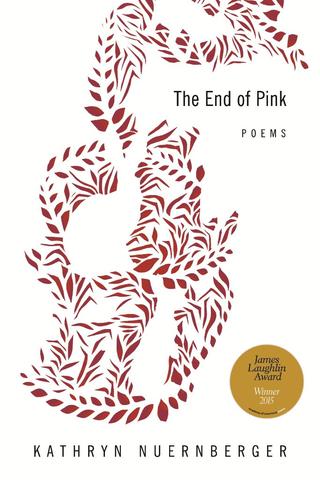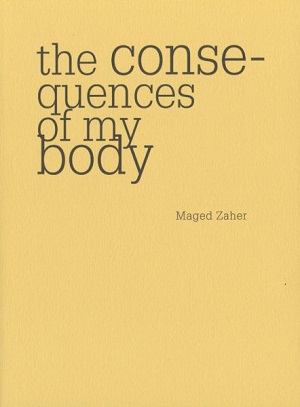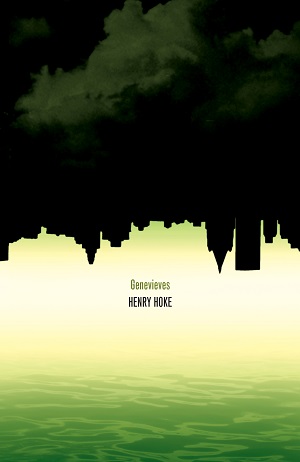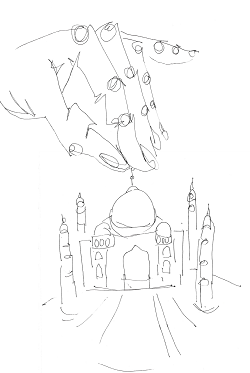 Inside V, by Paula Priamos
Inside V, by Paula Priamos
Death. Taxes. The onslaught of summer. With the turn of June, Los Angeles is assailed with super-heated layers of plasma-smog, anginaiac freeways, and Angelyne sightings. The rituals begin, paramount being the stuffing of beach bags with tubes of SPF 90 and first aid kits. Don’t forget to pack a couple of summer reads – you know, those paperbacks you can casually flip through in about the time it takes to get sun-blistered, but not feel totally ashamed about toting. Inside V, Paula Priamos’ first novel, is one such book. Its brisk pacing, hooky chapters, and Los Angeles setting make for a noirish wedge to stuff between beach towels and a damp bathing suit.
Inside V belongs to that most Los Angeles of genres, the detective thriller linked inextricably to the city itself. This genre, which I’ll refer to as Sunshine Noir, originated in Chandler’s hard-boiled classics, and goes strong today, as evidenced in Michael Connely’s architectonic potboilers and James’ Ellroy’s pugilistic historiographic meta-fiction, to say nothing of the endless film iterations (picture Jack Nicholson with a band-aid on his nose). What makes Inside V stand apart from its Sunshine Noir cousins, is Priamos’ gentle shunning of certain genre expectations. Not only is Priamos’ narrator, a former defense lawyer named Ava (or “V” to her dashing husband, Grant), not a detective, but Ava’s conflict is overwhelmingly internal – hence the title. To achieve this, Priamos dials back the physical violence inherent in Sunshine Noir and channels the strife internally, into a cognized landscape of deceit, mistrust, and manipulation. Not only does Inside V eschew genre norms by privileging interiority, but the book departs from the phallic gaze of these male-dominated thrillers by focalizing through a female protagonist. While Ava is certainly not the first female-narrator in Sunshine Noir, this is still a rare enough conceit to give the book a certain charm.
(Here I feel compelled to insert a slight disclaimer: in spite of the aforementioned genre about-faces, the ending of the book does, in some respects, retreat to norms. I won’t spoil anything, but apparently blood must be spilled, though here we can measure it in droplets instead of buckets.)
Inside V opens with Ava’s husband, the almost comically sexy Grant, being prosecuted for statutory rape. While Grant vehemently denies any indiscretion against the teen-aged Latina in question, he seems resigned to a prison sentence given mounting and damning evidence. Meanwhile, Ava wears a stoic smile to her husband’s court hearings, hoping her nightmare will soon end. From the start, Ava wavers about Grant’s culpability; while at first she wills herself to believe her husband’s innocence, soon the rape-victim’s testimony has Ava second-guessing. This pendulum between Grant’s guilt and innocence swings throughout the book, both for Ava and the reader, and this is where Inside V shines. Priamos masterfully balances a series of enigmas, parsing out information and characters like carefully laid breadcrumbs. Just when Ava feels certain about Grant, Priamos adds a new wrinkle. Sustaining mystery in this way carries with it the risk of twists and red herrings over-complicating the story to a comical degree; however, Priamos’ twists are embedded in small, almost mundane details – a forgotten wallet, a suspicious pharmacist. Rather than feel contrived, the shifting mystery acts instead to amplify Ava’s character as she devolves into a nearly unreliable narrator.
All of this takes place on a road trip of sorts in which Priamos revels in the most Los Angeles of locations, from Jerry’s Deli, to Trader Joe’s, to Monty’s Steak House, and to a Palm Springs resort that stands-in for any of a variety of the desert oasis’s mid-century modern hotels. (On a side-note: the book does leave Southern California for a minute, though it says a lot that this is the weakest section of the novel.) Road trips provide opportunities for deep thinking, and Ava goes deep, particularly into her past. This interior journey evokes powerful memories of envy, jealously, and betrayal that problematize relationships, and layers the book’s Sunshine Noir trappings in a gauze of reflection. Along the way, Ava takes stock of her life, assessing her flaws, weaknesses, and mistakes as a way of determining the ultimate mystery of the book, whether or not she should stay with Grant.
Taken as a whole, Inside V can be read both a mystery and a study of jealousy taken to its grim extremes. Yet, in spite of a hearty dose of dark themes, Inside V‘s brisk prose and day-tripping narrative avoid the typically nerve-wracking tension of its grimmer cousins. Instead, Priamos provides us with an appetizing slice of mystery and allure, a perfect palliative for a third degree sunburn. Better yet, by working against genre, Priamos has achieved the rarest feat of all: she has written a Sunshine Noir protagonist that is, against all odds, relatable.
Inside V is available now through Rare Bird Books.
Kirk Sever’s writing has appeared in Colorado Review, Unbroken Journal, Rain Taxi, Bird’s Thumb, and elsewhere. Additionally, Kirk’s work has earned him runner-up status in both the Academy of American Poets George M. Dillon Memorial Aware and the Northridge Fiction Award. He currently teaches writing at California State University at Northridge.

 The End of Pink by Kathryn Nuernberger
The End of Pink by Kathryn Nuernberger My country, tonight by Josué Guébo
My country, tonight by Josué Guébo Apocalypse All The Time, by David S. Atkinson
Apocalypse All The Time, by David S. Atkinson The Consequences of My Body, by Maged Zaher
The Consequences of My Body, by Maged Zaher Genevieves by Henry Hoke
Genevieves by Henry Hoke c by Kelly Schirmann
c by Kelly Schirmann
 Balloon Pop Outlaw Black, by Patricia Lockwood
Balloon Pop Outlaw Black, by Patricia Lockwood Dust Bunny City
Dust Bunny City
 Sonata in K by Karen An-Hwei Lee
Sonata in K by Karen An-Hwei Lee Blood on Blood, by Devin Kelly
Blood on Blood, by Devin Kelly Sing the Song, by Meredith Alling
Sing the Song, by Meredith Alling